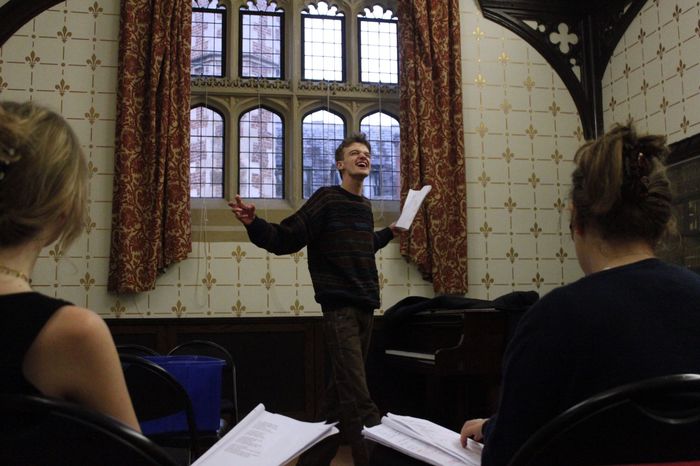A Tangled Web of Tales in Faith Healer
This spooky special casts doubt on everything we know

I’ll be honest, it was a bit embarrassing telling people who asked about my Halloween plans that I was going to review a show rather than go clubbing or to a party. But as I walked home past everyone in their costumes queueing up for Vinyl and Mash, I was filled with that familiar post-horror movie feeling of deep unsettledness and satisfied exhaustion that certainly beats the deflated trek home from the club.
“Filled with that familiar post-horror movie feeling of deep unsettledness and satisfied exhaustion”
Faith Healer is a play made up of four monologues, all largely covering the same events from very different perspectives. As stories unravel, mutate and develop, the audience is taken on a journey which plumbs the depths of despair. The narrative accrues a nightmarish quality of repetition, where we are trapped in a loop in which random words and sequences take on terrible significance and the tiniest detail can send our grip on reality spiralling back to square one. We are forced to act as detectives, trying to read between the lines to discover the grisly reality of the tale.
“The tiniest detail can send our grip on reality spiralling”
Fortunately, the actors give us ample material to work with. Their performances are rich with emotion and intention, taking the monologue form firmly into their strides. They fill the stage very successfully, bringing a grounded dynamism to the space which refuses to let one’s attention wander. Paul Carroll is particularly wonderful, providing an interpretation of Francis Hardy that never ceased to feel deeply honest despite the mystery and lies entangling his character. The other two stars, Gina Costigan and Johnathan Ashley also gave moving performances, even when doing something as simple as sitting in silence on the stage.
“All the shadowy menace of a thriller combined with the uncertainty of a detective story”
The staging itself was some of the best I’ve seen, with an enormous, tarnished mirror offering a sense of verity and pure sight and yet also creating a distorted, impeded view of the stage and its inhabitants. This, in combination with the outlines of Scotland, Ireland and Wales on the floor, worked to give the play an intensely liminal feeling, as though its characters are lost in space, always drifting from place to place totally alone. This unrooted-ness helped with the sense that the truth is always just out of reach, leaving the audience with a vague sketch of events but no certainty. The stripped back form of the play was complemented by minimal light and almost no sound, which I felt was pleasantly assured, and showed an awareness of form. When the lights were used, they tended to rely on tight spotlights that created an intense, almost religious atmosphere.
The play encourages you to constantly reassess, rejudge and rethink things you thought were sure, and shows how real people’s assessments and memories can feel to them, whether true or not. It calls objectivity into question, relentlessly troubling the existence of facts and planting multiple simultaneous truths while wryly reminding us that none of us are beyond remembering how things felt rather than how they happened. It questions the impacts of trauma, self-mythologising and interpersonal relationships on the formation of memory, and creates extremely complex and layered characters who only get more complicated the more anecdotes pile up and meaning collapses under the weight of them. Ultimately, if you’re looking to be unsettled, this play has all the shadowy menace of a thriller combined with the uncertainty of a detective story with no happily-ever-after, and will leave you sure only that human beings cannot be sure of anything.
 Comment / Plastic pubs: the problem with Cambridge alehouses 5 January 2026
Comment / Plastic pubs: the problem with Cambridge alehouses 5 January 2026 News / SU stops offering student discounts8 January 2026
News / SU stops offering student discounts8 January 2026 Theatre / Camdram publicity needs aquickcamfab11 January 2026
Theatre / Camdram publicity needs aquickcamfab11 January 2026 News / Cambridge academic condemns US operation against Maduro as ‘clearly internationally unlawful’10 January 2026
News / Cambridge academic condemns US operation against Maduro as ‘clearly internationally unlawful’10 January 2026 Comment / What happened to men at Cambridge?31 December 2025
Comment / What happened to men at Cambridge?31 December 2025









